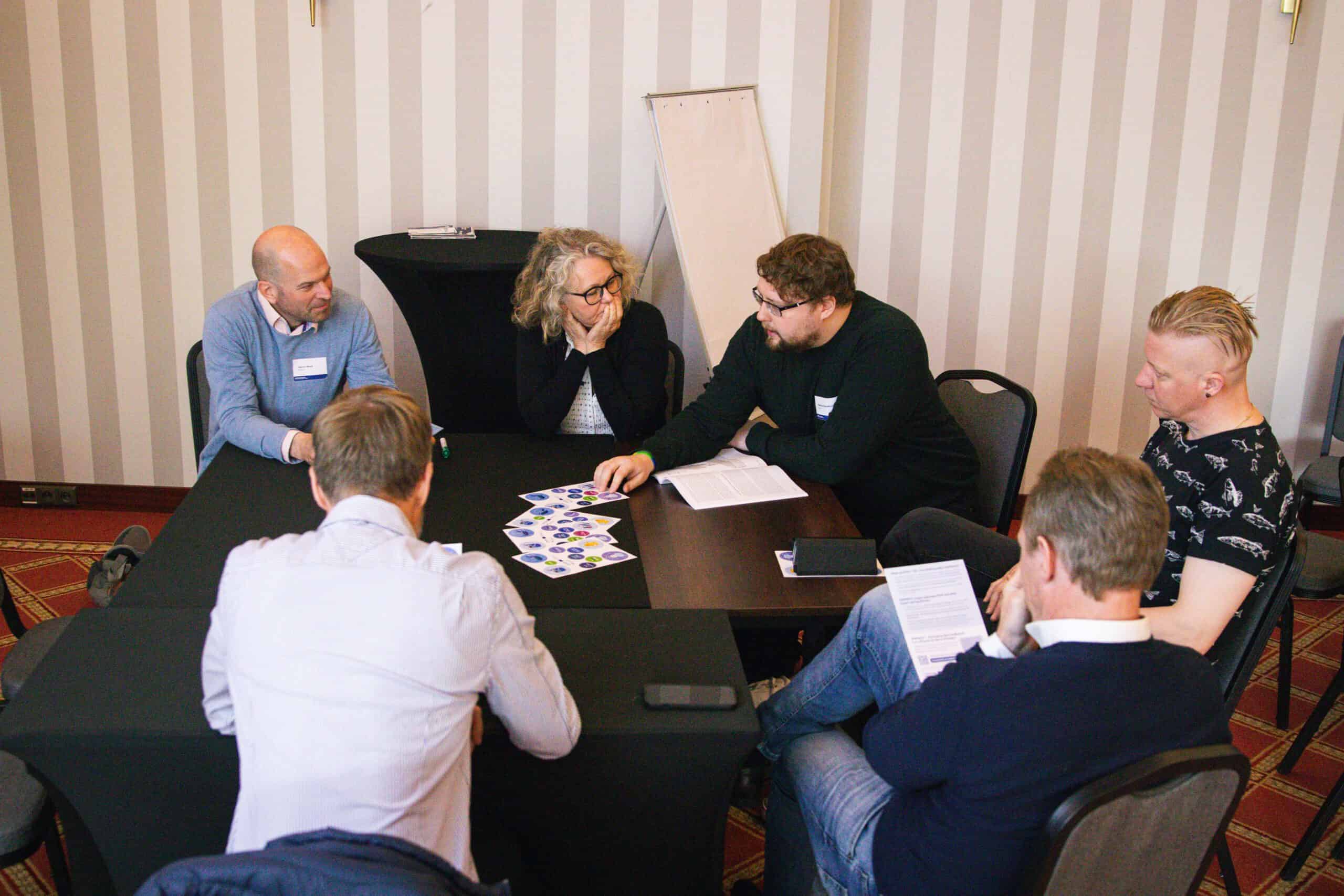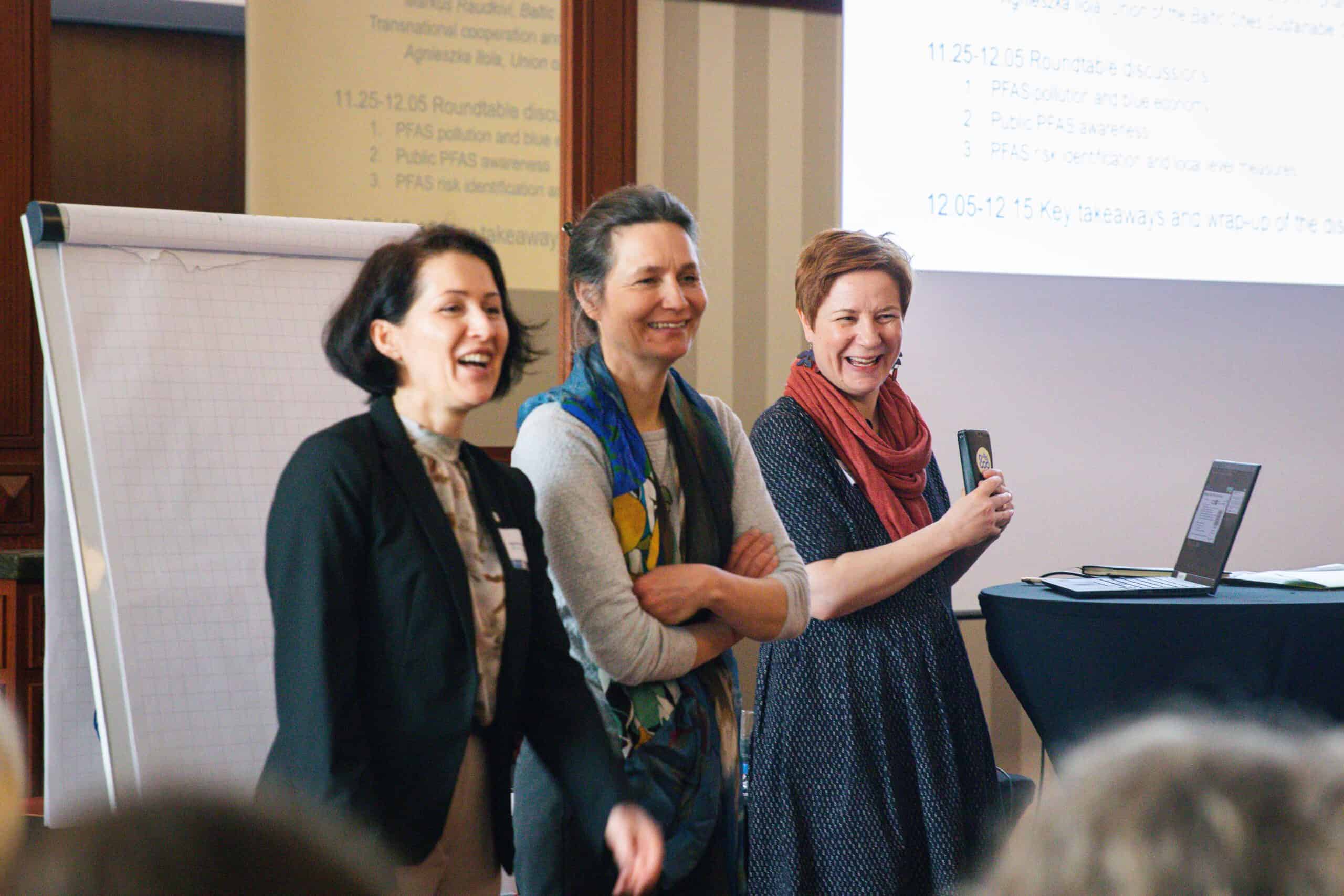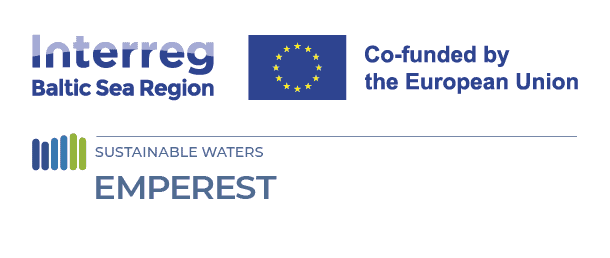
PFAS in the Baltic Sea blue economy: workshop at Mission Ocean macro-regional Arena
23 May 2025
This series of macro-regional events, “Mission Arenas”, has focused particularly on blue economy, i.e. the sustainable use of sea resources for economic growth and jobs, while preserving the health of sea ecosystem. In addition to blue economy, the topics covered in the arena ranged from security of maritime infrastructure to shipping and ports, and to marine protection and restoration.
EMPEREST tackling PFAS pollution
In the conference, EMPEREST project organized a workshop “Tackling PFAS pollution in water”. The aim of the workshop was to raise awareness of the risks caused by PFAS compounds and their impact on human health and the environment, particularly in the context of blue economy in the Baltic Sea and to highlight the importance of data collection and monitoring of PFAS pollution. Further, the objectives included collecting effective local level strategies and measures to mitigate PFAS pollution, such as hotspot identification and risk reduction practices. Finally, the workshop was a great opportunity to strengthen transnational cooperation and initiatives like EMPEREST to phase out PFAS, as well as sharing solutions for addressing contamination.
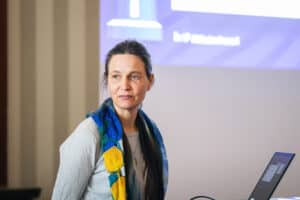
The EMPEREST workshop consisted of three expert presentations and of group discussions. Piia Leskinen from Turku University of Applied Sciences opened the session with a keynote introducing the problem of PFAS, the pollution sources, and the actions needed to tackle the problem. She underlined the extreme persistence of these compounds in the environment and explained how they magnify in the food chain.
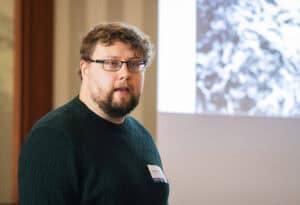
Next, Markus Raudkivi from HELCOM gave a comprehensive picture of PFAS concentrations in the Baltic Sea and of the concerns this emerging problem is causing in the region. Data shows that concentrations are high, especially in biota, but long-time trends also indicate positive signs of decreasing concentrations of some banned substances.
Third, Agnieszka Ilola from Union of the Baltic Cities Sustainable Cities Commission talked about the importance of transnational cooperation and presented the EMPEREST solutions in phasing out PFAS. The monitoring recommendations, PFAS risk-assessment tool, technology pilots for wastewater treatment and the training package materials EMPEREST produces will be useful tools in the continuous work of eliminating PFAS from the water cycle.
With all the information and concerns of PFAS hazards given in the presentations, the transition to group discussions was smooth. The three groups concentrated on public PFAS awareness, PFAS risk identification at local level and PFAS pollution in blue economy respectively. Interaction with participants from varied organisations, such as research institutions, regional authorities and private companies, was extremely fruitful.
Many asked if authorities are doing enough to tackle the PFAS problem; there seems to be a gap between scientific knowledge of the harmfulness of PFAS and the actions to phase out PFAS. PFAS risk identification at local level is a critical first step in managing PFAS contamination, enabling cities to understand potential exposure pathways and prioritize appropriate mitigation measures. Participants agreed that investing in local capacity building and awareness raising, such as training initiatives and improved access to technical expertise would greatly support this initial phase.
Currently the level of knowledge and understanding of PFAS varies significantly across BSR countries, highlighting the need for more harmonized approaches and shared learning. Industry stakeholders, such as people from fisheries and seafood production can sometimes be surprisingly well informed about PFAS. This is because of both new legislation about food safety, and from increased public awareness and media attention. Regarding PFAS hotspots, we learnt e.g. that offshore windfarms may be important sources of PFAS pollution.
Action points for marine protection
In the closing of the conference, all 300 participants were invited to vote for the most important actions to recommend as priorities for more clean and prosperous future of the Baltic Sea and North Sea. From the category of marine protection and restoration, a total of 9 action points were proposed through 3 thematic workshops. As a result of the vote, one of the points promoted by EMPEREST was voted for the list: “Tackling PFAS problem is essential for a sustainable blue economy and a safe circular economy. Since not all sources of PFAS are known, it is better to prevent their use as a group through EU-level legislation. The planned “PFAS ban” should apply to all products where safer alternatives are available.” This voting result shows how concerned various stakeholders in the blue economy field are about the topic of PFAS and it highlights the need of continued awareness raising on the regional level.
Read more: Roadmap 2030: Steps for effective deployment of the Mission Ocean & Waters

